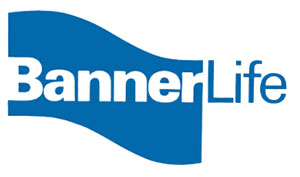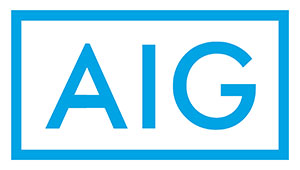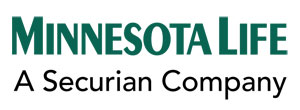Over half of all Americans have life insurance. The coverage and peace of mind it provides can be an indispensable resource for you and your family. Many of those who don’t currently have it know they should purchase life insurance, but they’re unsure how to pick the right provider. Life insurance companies offer a broad range of coverage and plans, so it’s important to find one that meets your specific needs.
13 Best Life Insurance Companies in the U.S.
- Mass Mutual
- Banner Life
- Protective Life
- Globe Life
- Nationwide Life Insurance
- Lincoln Financial
- American General Insurance (AGI)
- Minnesota Life
- Penn Mutual
- Fidelity Life
- State Farm
- USAA
- Prudential
Whether you’re interested in term life insurance or permanent life insurance – or if you’re still trying to figure out which is which – there are many qualified companies to choose from. Each will have different costs, products, and accessibility features, and it’s worth your time to look at several providers to ensure you’re getting the best plan.
13 Best Life Insurance Companies
1. MassMutual

The Massachusetts Mutual Life Insurance Company (MassMutual) has become one of the largest life insurance providers in the country since its founding in 1851. Based in Springfield, Massachusetts, the company offers a wide variety of term and permanent policies in addition to traditional investment and retirement services.
Their standard term life is available to those ages 18 to 75 for terms of 10, 20, or 30 years. Most of these plans can be converted to a whole life plan as well. However, you will likely need to undergo a medical exam unless you purchase a policy through their subsidiary, Haven Life. They also offer an instant life insurance option (DirectTerm) that can get you coverage the same day without an exam, but these policies will be more expensive. Their whole life is available for ages 0 to 90 with no maximum coverage limits, and their universal plans can be purchased by those ages 18 to 85.
MassMutual frequently earns high praise for its customer service and on average has far fewer complaints than competing providers. It is also a mutually held company which means that some policyholders may receive dividends.
2. Banner Life

Banner Life is owned by the company Legal & General America. The company is headquartered in Frederick, Maryland, and also provides similar insurance options through Banner’s sister company, William Penn. Started in 1949 as the Government Employees Life Insurance Company (GELICO), the name was changed to Banner in 1983.
There are two policy options offered by Banner: term and universal life. Because the company keeps its offerings so simple, it’s an ideal choice for someone who wants a basic policy at an affordable rate, but it may not be appealing to someone looking for more customization. Their term coverage lets you choose a period of 10 to 40 years and is available to applicants ages 20 to 75. These policies are also convertible to universal life until your 70th birthday. There are a few rider options such as coverage for your children until they turn 25, but these may not be available in all states.
Banner’s universal life policy can be issued up to age 85 and will stay effective till age 121. Consumers will also have the option to “short pay” on these policies by making higher payments upfront which can substantially reduce future payments.
3. Protective Life

Protective Life is based in Montgomery, Alabama, and has been selling life insurance since 1907. The company offers a variety of term and permanent life insurance and frequently has the lowest rates among its competitors. They also offer term coverage for up to 40 years, which very few companies do. Additionally, many policies – including those that go up to $1 million in coverage – can be obtained with no medical evaluation. Some term policies can be purchased online, but if you want universal or permanent life coverage, you’ll need to work directly with an agent. Protective Life earns average to just below average ratings on their customer service.
The company also offers numerous riders such as a children’s term rider, waiver of premium (where your premium is waived if you become disabled), accidental and accelerated death benefit, and an extended care rider. Finally, Protective Life shows strong cash growth for those with indexed universal life insurance; however, cash accumulation in the first years of a policy may be slow.
4. Globe Life

Founded in 1951 and headquartered out of McKinney, Texas, Globe Life was acquired by Liberty National in 1980. Globe Life (also known as Torchmark before 2019) offers term policies from one to 30 years with rates that increase along with your age. These increases occur every five years and can be substantial. Unlike many other companies, they do not require medical exams which makes Globe a good choice for someone who’s looking for affordable coverage with little to no waiting period.
The company's coverage limits tend to be significantly lower than their competitors (only up to $100,000), so if you prioritize a higher payout you may want to research other options. They also offer a 30-day money-back guarantee for a full refund for any reason you’re not satisfied with your coverage.
The company offers accidental death, whole life, burial insurance (also called final expense insurance), and children’s life policies. Unfortunately, Globe sees a high number of consumer complaints concerning lack of response time and delayed claims processing.
5. Nationwide Life Insurance

Nationwide Life Insurance Company, originating in Columbus, Ohio, has been in the business for nearly 100 years and provides customers with auto, home, pet, and renters insurance in addition to life insurance plans. The company's term life insurance coverage ranges from five to 30 years and those up to age 95 can obtain universal coverage. Their term plans are also convertible into whole life plans until age 65. Some of their whole life plans can be purchased without a medical exam and offer fixed premiums and interest rates. They also have an extensive range of unique riders available such as chronic illness and terminal illness.
Their rates and coverage amounts are competitive among other carriers and while you can obtain a quote online, you will need to speak with an agent to purchase a policy.
6. Lincoln Financial

Lincoln Financial began in Fort Wayne, Indiana in 1905 and today offers term and universal policies but does not currently offer whole life. Their term plans are available in lengths of 10 to 30 years and can be converted to a permanent plan up to the age of 70. Many applicants looking for term plans may be able to bypass a medical exam if they’re in excellent health and between the ages of 18 and 60. The rates are competitive and the company offers high coverage amounts of $1 million or more.
Lincoln Financial also provides many options for variable universal life insurance that are available in all states except New York, including plans specific for business owners and survivorship plans that cover two people.
7. American General Insurance (AGI)

Headquartered in New York, New York, American General Insurance (AGI) has been selling life insurance since 1919 and currently sells internationally as well. Their policies are available in all states and most consumers will be able to find low-cost term plans, but they will likely have to undergo a medical exam.
They do offer whole life policies without an exam for those ages 50 to 80, as well as some universal plans that don’t require an exam. Their whole life plans will likely be attractive to seniors since they come with available riders such as chronic and terminal illness protection. However, those who need the highest amount of coverage (over $2 million) may not be able to find a plan with AGI that meets their needs.
Recently, AIG has responded to the growth in legal recreational marijuana use across the country by updating many of its policies. Those who use recreational marijuana fewer than eight times per month may still be able to receive a preferred rate, while other providers typically only offer standard rates.
8. Minnesota Life

Minnesota Life began in 1880, and in recent years has changed its name to Securian Financial. The company sells term, whole, universal, and long-term care insurance and is consistently rated as having excellent financial strength. Securian also offers a number of riders that customers can add on to their policies and the company as a whole receives very few complaints and has high customer satisfaction overall.
Almost none of their policies offer guaranteed coverage, meaning most consumers will need a medical exam before being approved. And, although they have a comprehensive website with tools to compare policies and submit claims, the only way to submit questions is to email or call the company during business hours which are only Monday through Friday and you can only obtain a life insurance quote from a representative. This makes it ideal for someone who likes to work directly with an agent, and less convenient for consumers who like to do business digitally.
9. Penn Mutual

Since 1847, Penn Mutual Life Insurance Co. has been providing competitively priced policies for consumers. Those who are looking for a life insurance policy for estate planning may like Penn Mutual’s offerings for higher death benefits. This allows beneficiaries to pay off high estate taxes without sacrificing their inherited assets. And, although they do offer many different types of plans, they are best known for their whole life policies which consistently pay out dividends to policyholders. Additionally, many of the company's policies are available without a medical exam, even those with coverage of several million dollars.
Penn Mutual may not be best suited for consumers who like to do the majority of their research and business online since they have very limited information about their policies on their website. They also don’t allow consumers to apply or receive quotes online, forcing them to contact an agent instead. That said, they maintain very high customer satisfaction ratings and receive far fewer complaints than their competitors.
10. Fidelity Life

Fidelity Life has been in business for 125 years and is headquartered in Chicago, Illinois. It offers a range of term, whole, and universal policies and works with its sister company, eFinancial to provide quotes and plans for consumers.
Although Fidelity gets mixed reviews on its customer service and has a higher than average level of complaints, it does stand out as a solid option for those over the age of 50 who are looking for a good term or whole life policy. Their RAPIDecision Senior Whole Life policy is designed specifically for those aged 50 to 85, and their RAPIDecision Senior Life term policy is for those 50 to 70. With both of these plans, many customers won’t need to take a medical exam.
11. State Farm

State Farm started as an auto insurance company in Bloomington, Illinois in 1922. Today, the company offers a wide range of insurance policies including homeowners insurance and life insurance. The company consistently receives high ratings for its affordable plans and customer service. State Farm offers term insurance in 10, 20, and 30-year lengths which are renewable up to age 95. They also offer whole and universal life including joint universal plans and survivorship plans which aren’t available with all providers.
State Farm also earns high marks for its accessibility tools like its website which includes an online portal where you can view your policy and pay premiums, 24/7 customer service hotline, and a highly rated mobile app.
12. USAA

USAA is an insurance company for veterans, those currently in the armed forces, and their families; however, anyone can qualify for their life insurance policies even if they’re not in the military. The company provides term and whole life policies along with special military-specific perks such as severe injury payments and coverage while you’re in war. USAA receives positive ratings for its customer service, financial stability, and low costs, but most policies will require a medical exam and they have fewer insurance products than their competitors. Additionally, some policies may not be available in all states.
Since most of their customers are in the military and deployed all across the globe, USAA has an extensive web presence where you can apply for coverage, manage your accounts, and they have highly-rated mobile apps for both iOS and Android.
13. Prudential

Prudential is one of the largest insurance providers in the United States and has been in the business since 1875. The company is headquartered in Newark, New Jersey, offering services to people in over 40 countries. Their term insurance plans are available for those up to age 75 with guaranteed premiums for 10, 15, 20, or 30 years. For people up to the age of 85, Prudential’s universal life plans can be obtained with flexible premiums so you can customize how much you pay in any given year.
They typically maintain competitive rates, but they don’t offer any discounts for bundling with other policies so consumers may find lower premiums by sticking with their current home or auto insurance provider. Additionally, many of Prudential’s plans will require a medical exam and they do not currently offer any whole life plans.
How To Choose the Best Life Insurance
There are many types of insurance to protect homeowners and their families. Shopping for the best life insurance plan is an important step in any adult’s life, but it will also take a considerable amount of time to ensure you have the right insurance coverage for your needs.
- Establish your goals
- Decide how much coverage you need
- Determine what can you afford
There are several types of life insurance and once you determine what you want to get out of a policy, you can decide what kind of policy to buy. You may be primarily concerned with covering costs after you die such as unpaid debts and taxes, providing basic living expenses for your family, or providing for a child until they reach adulthood. Others may wish to leave their wealth and assets to charitable causes or organizations you supported during your life. Some people may prioritize reducing tax implications for their beneficiaries. Whatever your priorities are, speak candidly about them with agents so they can present products that deliver on your goals.
The amount of coverage you can buy can range from as little as $10,000 and can reach into the millions. Many agents will advise you should have six to ten times your annual salary in coverage, but this is only a ballpark estimate and you may have other factors that would raise or lower this figure. For example, if you have multiple children you may wish to increase the amount to adequately cover costs like college and health insurance. However, if you have a surviving spouse who’s able to work and also carries their own life insurance you may not need as much. You’ll also need to consider how much other savings, investments, and assets you’ll be leaving behind for your family as this may offset the total amount of life insurance coverage you’ll need.
Consider what you're able to afford in terms of your premium. Some plans can cost as little as $30 a month, but others where your monthly premium will be hundreds of dollars. If you choose term insurance, the money you put into your coverage each month will not be recouped, but you will have lower monthly payments.
There are permanent plans where the policy is good for your entire life. Whole life plans build up cash value over the life of the plan and they’re valid as long as you keep paying. If you choose to discontinue your coverage, the money will be returned to you. Alternatively, a universal plan takes your premium contributions and uses them as an investment strategy. These can be profitable, but you’ll want to compare each company’s performance with what your money can earn in the market.
The Bottom Line
The best life insurance company for you won’t necessarily be the best company for someone else. Each life insurance product is designed with a specific consumer in mind and you should reach out to different companies to obtain quotes and ask questions. Get at least three or four quotes and then compare them side by side.






